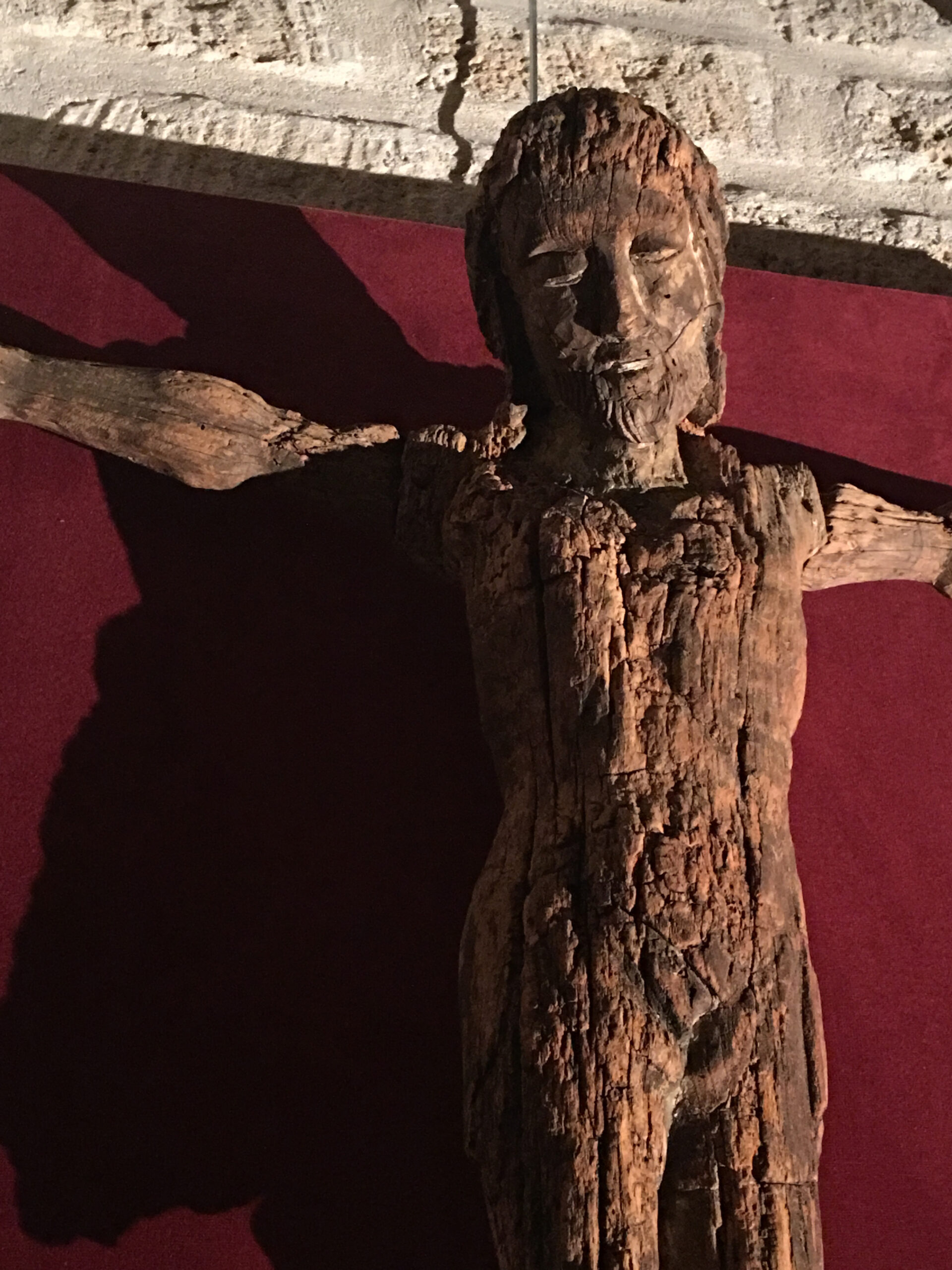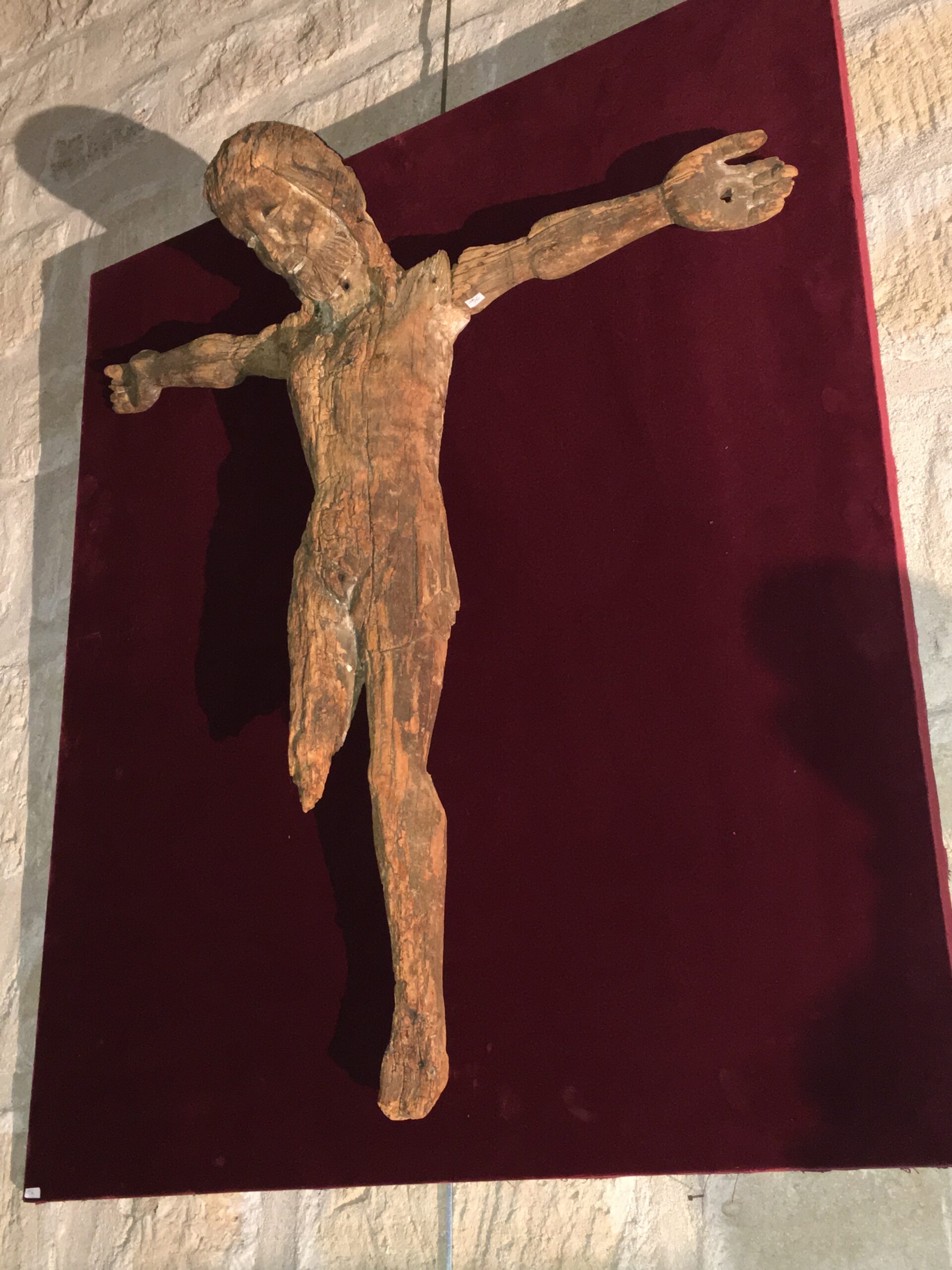Description
This wood Christ bears signs of time without diminishing its grace nor its interest.
This Christ presents some characteristic of the previous century. While the feet are missing the position of his legs, parallel one to the other, let us think his feet where placed side by side as in the 12th century’s crucifix. The remains of his perizonium let us guess the cloth was very short, displaying the knees and a part of the thighs. The figure is straight, the arms horizontal, the hands open -with tha palm then pierced by nails- and the thumbs parallel to the other fingers as in most of the 12th century’s Christ on the cross.
However some characteristics are clearly from the 13th century. The anatomy, while not precise is nevertheless abandoning the Byzantine tradition still in vigor during the previous century. The sculptor has tried to depict a more realistic body. The head in bending on the chest towards the right. This depiction follows the Scriptures ‘Et inclinato capite tradidit spiritum’ Jn, XIX-30.
The beard is precisely carved with incisions. While very much used his hair can be guessed with some locks dropping on his shoulders. Remains also what might have been a crown on the head of Christ.
His face is soft and serene. The cheekbones slightly marked, the nose straight and eyes well defined, with the eyelids semi closed. The mouth is vaguely opened. Christ looks like accepting his sacrifice and welcoming eternity. There is not an expression of pain to diminish the beauty of his face.
‘The truth is that such a mastery of realism, such dignity with such tragic, isn’t it the the characteristic of French Art during the 13th centruy’ (Paul Thoby, Le Crucifix des Origines au Concile de Trente, Bellanger, Nantes, 1959, p. 149)
This alliance between tradition and modernity might allows us to date this Christ on the Cross during the first third of the 13th century.



